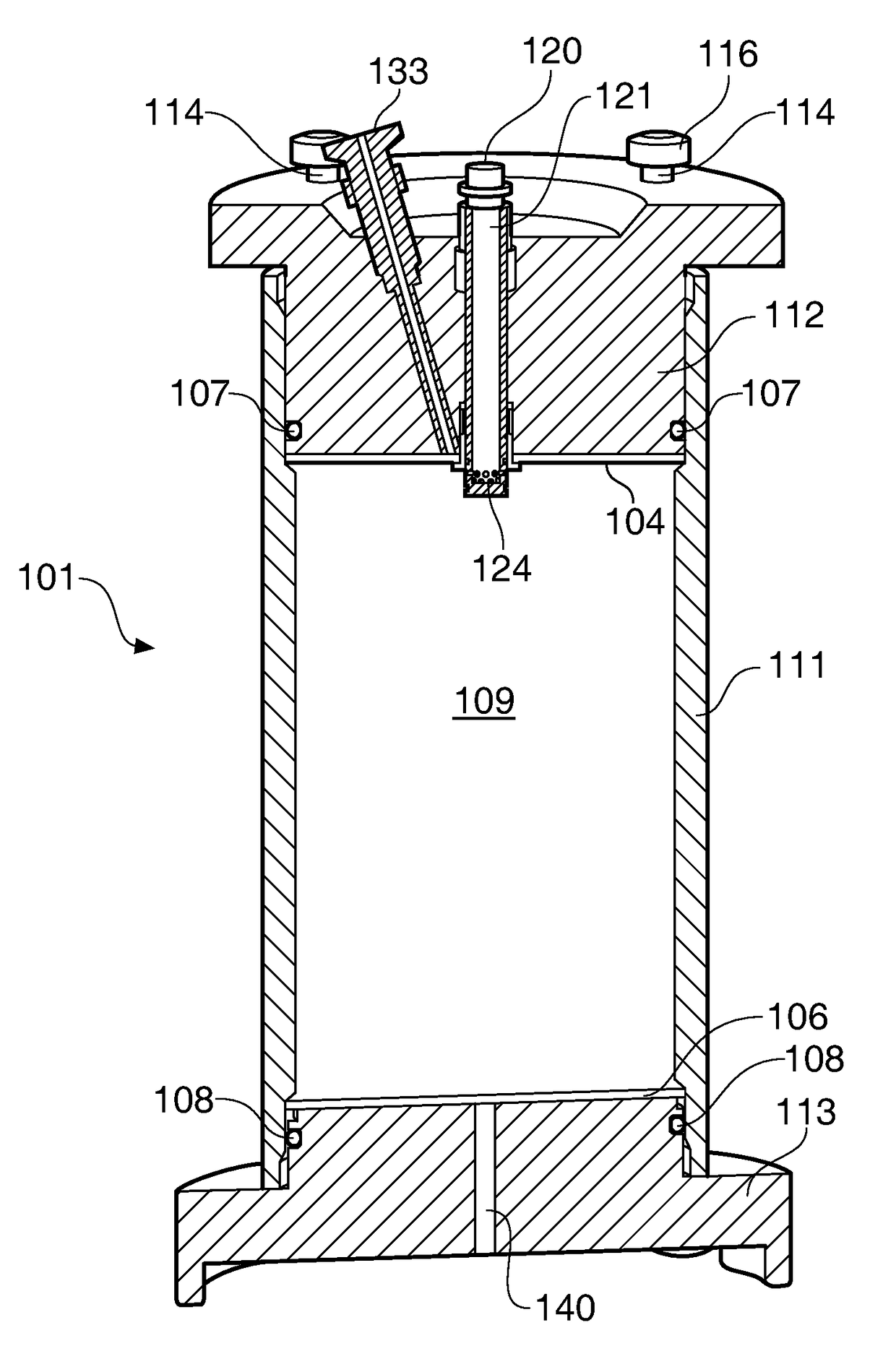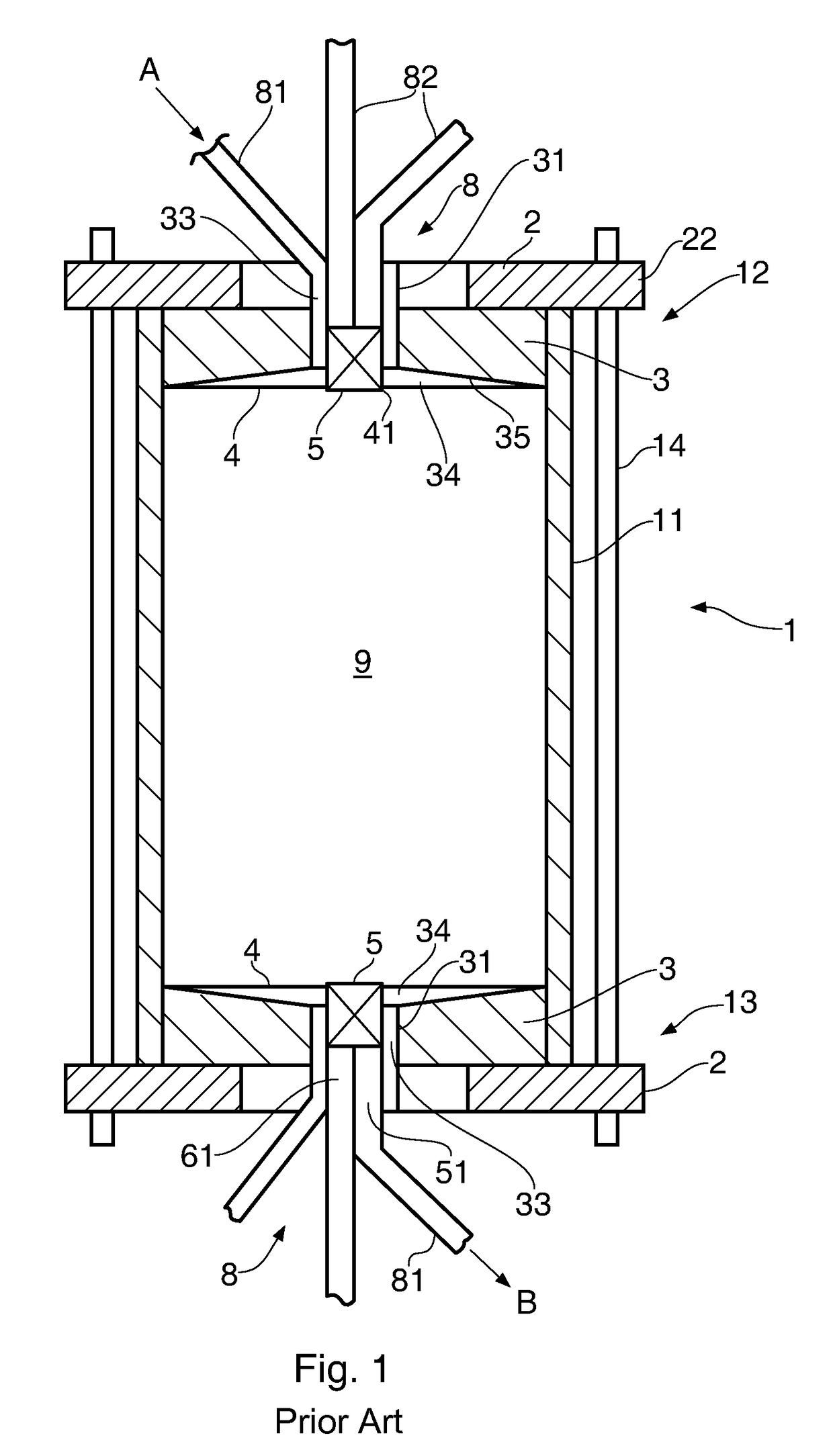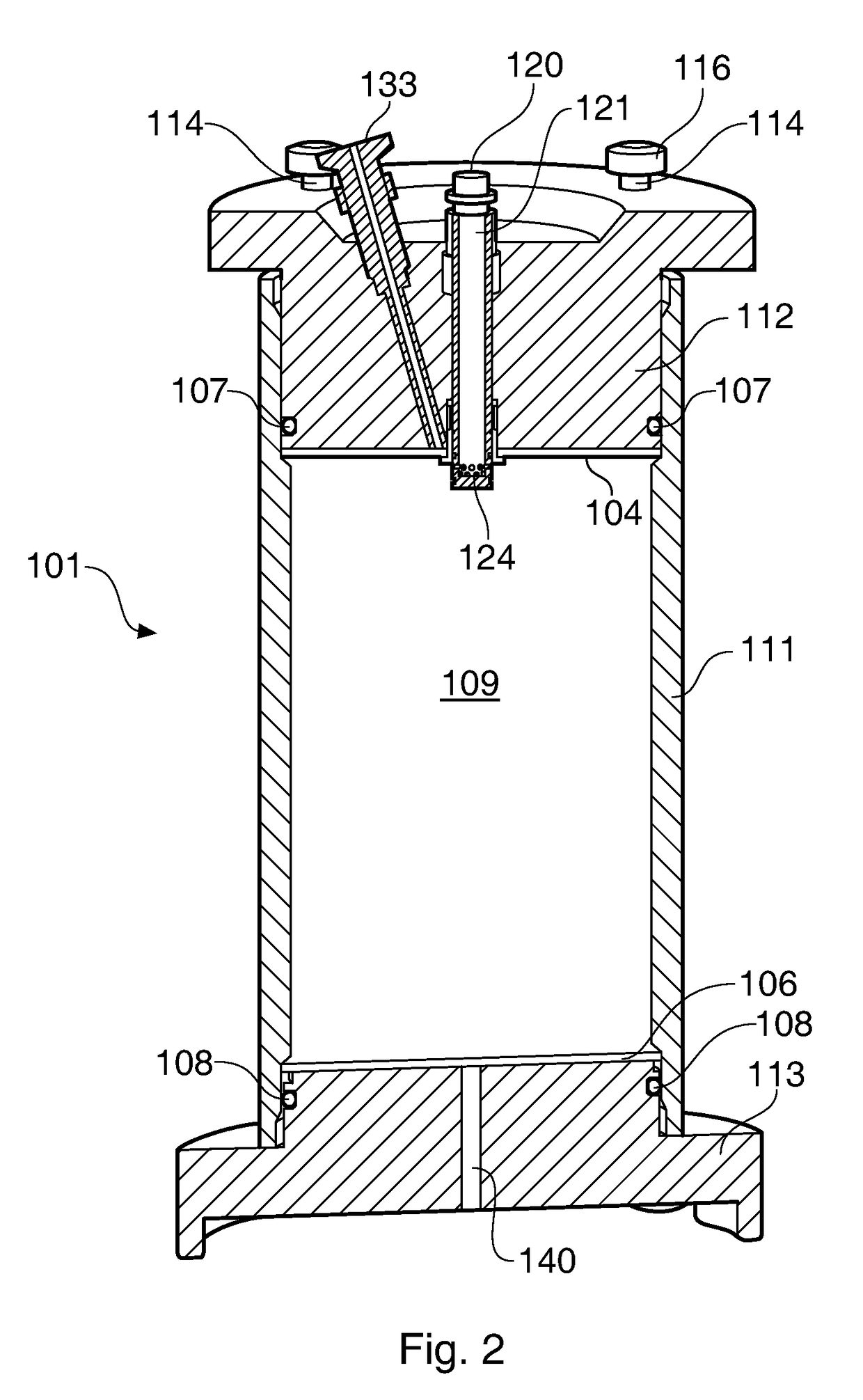Packing system and method for chromatography columns
a chromatography column and column technology, applied in the field of system for packing chromatography columns, can solve the problems of axial heterogeneity, poor bed stability, and uneven column efficiency, and achieve the effects of improving bed stability, high mechanical complexity, and high column efficiency
- Summary
- Abstract
- Description
- Claims
- Application Information
AI Technical Summary
Benefits of technology
Problems solved by technology
Method used
Image
Examples
Embodiment Construction
[0053]FIG. 1 shows schematically the general components of a chromatography column 1 as known from the prior art (for example, see U.S. Pat. No. 6,524,484). The column has a cylindrical fluid-impermeable side wall 11, e.g. of stainless steel or a high-strength / reinforced polymeric material which may be translucent. The open top and bottom ends of the side wall 11 are closed by top and bottom end assemblies or units 12, 13. Each end unit has a fluid-impermeable end plate 3 fitting sealingly to plug the opening of the cylindrical wall 11, and preferably made of stainless steel or high-strength engineering plastics material, e.g. polypropylene. The end plates are backed up by retaining metal plates 2 bearing against their outer surfaces and projecting radially beyond the side wall as retaining flanges 22 through which adjustable tension rods 14 are secured. These link the top and end assemblies 12, 13 and help the construction to withstand high fluid pressures.
[0054]Each end plate 3 ha...
PUM
| Property | Measurement | Unit |
|---|---|---|
| column diameter | aaaaa | aaaaa |
| column diameter | aaaaa | aaaaa |
| particle diameter | aaaaa | aaaaa |
Abstract
Description
Claims
Application Information
 Login to View More
Login to View More - R&D
- Intellectual Property
- Life Sciences
- Materials
- Tech Scout
- Unparalleled Data Quality
- Higher Quality Content
- 60% Fewer Hallucinations
Browse by: Latest US Patents, China's latest patents, Technical Efficacy Thesaurus, Application Domain, Technology Topic, Popular Technical Reports.
© 2025 PatSnap. All rights reserved.Legal|Privacy policy|Modern Slavery Act Transparency Statement|Sitemap|About US| Contact US: help@patsnap.com



